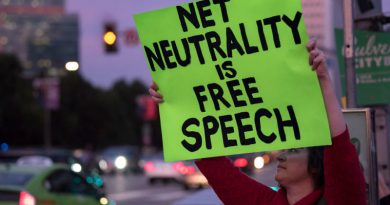Anti-Abortion, Anti-Homosexual Legislation Blocked in Guatemala
Charleigh Stone
Staff Writer
On March 15, Guatemala’s Congress reversed the decision to pass the controversial “Protection of Life and Family” law (Law 5272), which aimed to strengthen penalties for abortion, prohibit same-sex marriage, and ban discussions of sexual diversity in schools, according to The Washington Post. The decision to indefinitely table the bill came just a week after it first passed with an overwhelming majority of 101-8, with 51 legislators absent.
The Washington Post further reports that the reversal came after President Alejandro Giammattei threatened to veto the bill over elements deemed unconstitutional and in violation of Guatemala’s obligations under international law. Under the proposed legislation, women would face up to ten years in prison if convicted for terminating a pregnancy, even in the case of a miscarriage, and even heavier penalties for doctors and others who assist in the termination of a pregnancy. Currently, abortions are only legal when the life of a woman is at risk.
The law would have also reformed Guatemala’s civil code to expressly prohibit same-sex marriage and ban schools from teaching pupils that “anything other than heterosexuality is normal,” reports BBC News. Guatemala is a party to both the International Covenant on Economic, Social, and Cultural Rights and International Covenant on Civil and Political Rights which prohibit, per Articles 2(2), the “distinction of any kind, such as race, color, sex, language, religion, political or other opinion, national or social origin, property, birth or other status.”
The Guatemalan Congress initially passed the “Protection of Life and Family” law on International Women’s Day, March 8, nearly five years after it was originally submitted to the legislative committee in 2017 by Congressman Anibal Rojas Espino of the conservative Vision with Values (VIVA) party. It has since been slated by human rights organizations for its regressive content, which undermines the rights of women and people who identify as lesbian, gay, bisexual, transgender, intersex, and queer (LGBTQI+).
Erika Guevara Rosas, Americas director for Amnesty International, condemned the legislation’s threat to human rights: “This law will not protect families; it will foment hate and discrimination, putting the lives and rights of countless people at risk.” Amnesty International reports that 32 LGBTQI+ people were murdered in Guatemala last year with another nine murdered so far in 2022. Guatemala also registered an alarmingly high level of pregnancies amongst girls and adolescents, with 2,041 girls under 14 years old giving birth and 65,000 pregnancies in girls between 10 and 19.
Human Rights Watch reports that the implementation of the “Protection of Life and Family” law would make Guatemala an outlier amongst Latin American states, which have become increasingly more liberal on reproductive rights. Hundreds of Guatemalans protested the bill over the weekend, with women’s rights advocates and LGBTQI+ community members speaking on fears of living in a state where restrictive policies and legal initiatives put them in a situation of high risk. According to Al Jazeera, many elements of the current proposal led its previous supporters, including the conservative Family Matters Association, to raise concerns over its content and interpretive ambiguity.
The New York Times says that Mr. Giammattei’s decision to veto the bill, which he announced in a video broadcast on national networks, surprised analysts, human rights activists, and Guatemalan officials. The day after the bill passed, Mr. Giammattei attended an anti-abortion ceremony, declared Guatemala the “pro-life capital” of Latin America, and stated his belief “in respect for life from the moment of conception.” He soon distanced himself from the bill, however, to which he said the anti-abortion ceremony should not be linked to the legislature’s approval of anti-abortion measures, which suffer from “technical deficiencies” and “violate the constitution of the republic.”
Officials and human rights activists agree the bill’s reversal was likely prompted by the onslaught of backlash both domestically and internationally, which made its implementation too politically risky for Mr. Giammattei who is already grappling with approval ratings. According to Human Rights Watch, however, the “Protection of Life and Family” law is not only a flagrant violation of human rights but “a smokescreen for corruption,” employed to draw attention away from corruption allegations against the president which surfaced last month.



